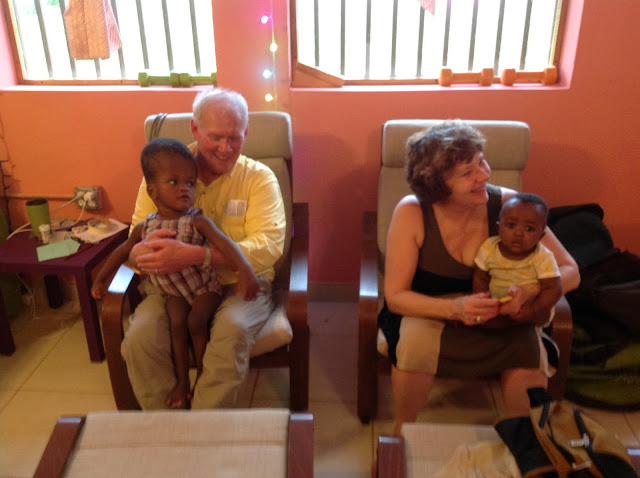We both get hit with symptoms of anxiety, and it is really unpleasant. For me, my palms get sweaty, my heart beats fast, my chest gets tight, my body feels cold and tense, and I start scanning for a way out of whatever the perceived danger might be in that moment. Once I realize there is no real danger, the physical symptoms do not go away instantly, but I’m usually able to calm down in a few minutes. Despite the symptoms quickly leaving, it is still a jarring and unpleasant experience.
The first week we were here, we went to church on Sunday morning. Our church meets in a music venue housed in an old building along train tracks near downtown Nashville. During a quiet part of this service, a train rolled through. No one else seemed to react, but Roni and I both looked at each other, and when our eyes met, I knew he thought the same exact thing that I did in that moment. Our minds and bodies remembered the fear during the earthquake that we experienced separately and very differently while living in Haiti, and the adrenaline instantly surged through our bodies during church.
Here are some other moments that have pointed out our hypervigilance recently:
- Our heater in our bedroom = screaming in the night
- The sound of a lighter lighting a candle at 3:00 am = someone getting ready to pull a gun trigger
- Construction of the parking garage by our apartment = earthquake
- Rocks being dumped to build a sidewalk = rocks being pelted on a tin roof to intimidate or glass bottles being thrown in a riot
- A small rock hitting our windshield on the highway = a rock or bottle thrown in a riot
- Sudden, hard rain = fear of flash flooding, feeling of needing to unplug all major appliances and get mops and buckets ready for rain entering our house
- A phone call late at night = expected news of death or major emergency
- Walking by myself in our neighborhood = needing to be on guard for theft
Most of these responses to fear have come from an accumulation of small events over a period of five years: being one motorcycle behind a guy hit in the head with a glass bottle in a riot, having to quickly back out of a dark alley after hearing the first gunshot go off, going through barricades (burning tires, men hitting our vehicle with their hands, men yelling with machetes, men ready to throw large rocks), navigating public transportation during flash flooding and learning when to stay put and when to go through the water, having a sick child or being sick ourselves knowing the roadways to the hospital are blocked, etc.
Some events were bigger and stick out as being much more memorable on their own. I can still remember the day we saw someone murdered while we were at an intersection on a motorcycle-- it plays like a movie in my head nearly five years later. I will never forget the night we had water a couple inches deep in our van or the faces of the people who couldn’t swim as the waters were rising in a flash flood-- it is in this same event that I learned how awful mass graves are. I certainly won’t forget the feeling of urgency when someone we love needs blood donated for a transfusion or how fast we can find a cooler and ice to transport blood by moto taxi. I won’t forget the chaos of being in a crowd when someone needed medical attention because part of her ear was bitten off in an argument (yes, this is true, and it’s a separate event from the woman in our village who had her ear cut off with a machete). I’ll never forget the fear while trying to outrun armed men on dark goat paths after going to the hospital for medical care during a lock down. I won’t forget the surge of panic when an earthquake shook our house or the guilt when I realized my two arms are only enough to grab two sleeping kids out of bed to take cover and not seven kids. And as much as I try to forget what it’s like to be a first responder in a near fatal accident involving family and friends, I know I won’t ever forget.
These events really are too many to count or list. They are the things we have had to keep from coming to the surface on fundraising trips or when hosting mission teams. (Disclaimer: I promise where we lived at COTP was very safe and mostly sheltered from danger-- it was a blessing to live in such a secure and quiet part of Haiti). We try to keep a decent filter when we talk with friends and family about our time in Haiti, but sometimes these things seep into the conversations anyway. It is still a challenge for me to be out anywhere at night, and I have had to ask Roni to not work any 3pm-11pm shifts or overnight shifts at work like he used to before we lived in Haiti because I still feel unsettled at night fairly often. We are learning how to manage these symptoms and talk about them often with each other and in therapy.
I know this is not the most fun topic to start with as I document some of our transition, but it is a very real part of our lives during this season. This might help to explain a small portion of where we are at when we say we are “doing okay” or “slowly adjusting.” I promise I will make the next post about a lighter topic!
- Steph
































































